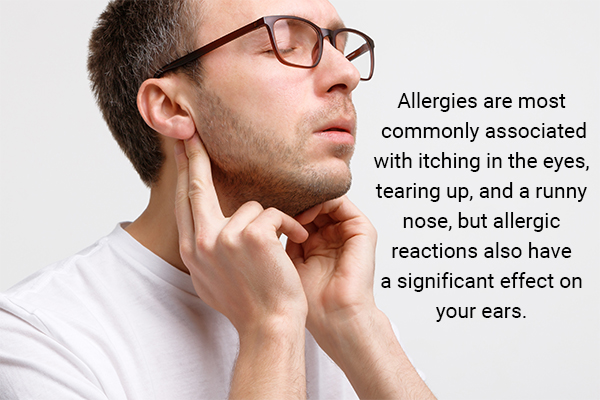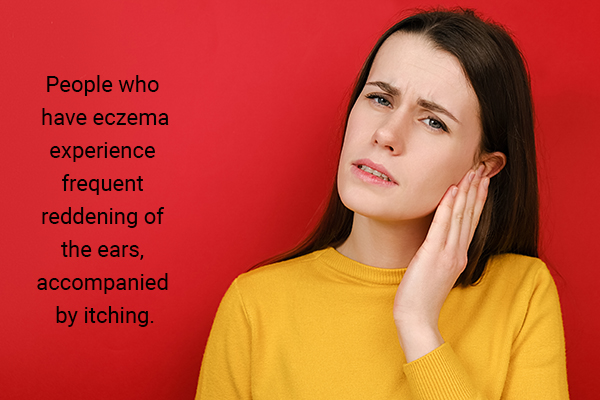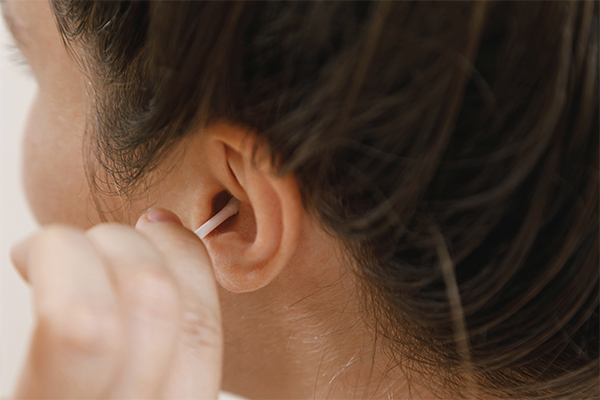In this article:
If you ask anyone from a child to an adult about their ears, they’ll tell you that ears are the hearing organs, which is correct, but that information is vastly incomplete. The ears do a lot more than hear.

The ear is divided into three sections:
- External ear
- Middle ear
- Inner ear
It is your external and middle ears that form a sound transport canal system that transmits sound to the inner ear to contain. Thus, the ears are known as the organ of hearing.
But what you might not know is the ears are also the body’s organ of balance. (1) So, the next time you walk without tripping, be thankful for your ears!
The Connection Between the Ear and Other Body Parts
The ear is a very small structure, but you would be surprised to know that it has 5 cranial nerves that connect it to different body regions. (2)(3) This means that any condition in these areas will also show some sign in your ears.
These nerves are:
- The trigeminal or the V cranial nerve
- The facial or the VII cranial nerve
- The vestibulocochlear or VIII cranial nerve
- The glossopharyngeal or IX cranial nerve
- The vagus or X cranial nerve
Any pathological issue in various bodily regions can, therefore, also lead to ear problems. In fact, most of the things related to ears – from physical examination to ear wax analyses – can give hints about your health status.
Just a quick glance at your ears by an expert can help them identify some health conditions you may suffer from. So, if your ears hurt, itch, or ring, don’t take it lightly!
Things Ears Reveal About Your Health
Here are some things your ears can tell you:
1. You may be diabetic

Diabetes may lead to neuropathy of the auditory nerve. This means that diabetics may experience hearing loss. They are twice more prone to hearing loss than nondiabetics. (4) Not only this, even if you’re only prediabetic, you may be 30% more susceptible to hearing loss.
Moreover, people with high blood sugar levels have more alkaline ear wax, increasing their risk of outer ear infections. (5)
2. You may be at risk of heart diseases
A study published in The American Journal of Cardiology suggested that people who have a diagonal crease by their earlobe are more prone to cardiovascular conditions than those with wrinkle-free, smooth earlobes. (6)
3. You may be battling depression and anxiety
You may have heard people complain about a ringing sound in the ear, known as tinnitus. This has been seen to be a symptom of over 200+ issues, from mental health disorders to heart or brain diseases.
In most cases, the ringing sound may point toward anxiety and depression. When you experience emotional stress, you may get dizzy and experience tinnitus. (7) One study found that a large number of people with anxiety disorder experienced tinnitus.
Although very rare, a continuous ringing in the ears may indicate a developing brain tumor.
4. You suffer from allergies

Allergies are most commonly associated with itching in the eyes, tearing up, and a runny nose, but allergic reactions also have a significant effect on your ears. It may cause: (8)
- Itching in the ears
- Ears feeling clogged up
- Swelling of the ears
- Discomfort in the ears
- Pain in the ears
5. You may need to see a dentist
Experiencing immense pain in your ear does not always relate to an ear issue, but it can be due to dental or oral problems. (9)
From a young age, you may have noticed that toothache is always accompanied by an earache. This is mainly due to problems in the temporomandibular joint, which is closest to your ears.
6. You may need an oncology exam to be on the safe side
People who suffer from cancer and have tumors in the face or neck regions may experience continuous earache and discomfort. This is because these areas are connected to the ears via the cranial nerves, causing ear symptoms.
It is for the same reason that these patients may suffer from damage to the hearing nerve during chemotherapy. (10)(11)
7. You may have eczema or fungal infections

People who have eczema experience frequent reddening of the ears, accompanied by itching. They may also have white discharge coming out of the ears.
Scratching the itch can cause the infection to intensify or spread. (12)
8. You may be having a stroke
Having numbness in the ear is a possible indicator of stroke. In such a case, look for accompanying symptoms such as: (13)
- Difficulty speaking
- Weakness in the limbs
- Facial drooping
- Vertigo
Numbness accompanied by some tingling in your fingers can be due to peripheral neuropathy, which is a common condition for diabetics.
9. You may have an injury
Sudden hearing loss, especially if it occurs in only one ear, may be the result of trauma. However, it can also be due to an infection or fluid buildup. (14)
Most-Asked Questions About Ear Infections
What is a risk factor for ear infections in infants?

Infants who are not breastfed or who wean from breast milk very early may experience an increased risk of ear infection. (15)
Are ear infections highly contagious?
As discussed above, ear infections are mainly due to infections starting from other body parts that settle in the ear. This makes them not so contagious.
Untreated ear infections can lead to what complications?
If left untreated, ear infections have the potential to cause serious complications including: (16)
- Nearby bone inflammation
- Hearing loss
- Scarring of the eardrum
- Meningitis
- Speech problems
- Face paralysis
Final Word
Your body does its very best to make sure you know what’s going on with it by dropping signs and hints. You should carefully listen and observe such changes or complaints and go for further evaluation if you think you need it.
The ears are a very helpful organ when it comes to checking for possible health risks.
For instance, earwax consistency can let you know a lot about your body’s health status. It can give you information about potential chronic disorders or the onset of infections. Do not take such signs lightly, especially if they persist for a very long time.
- Was this article helpful?
- YES, THANKS!NOT REALLY


